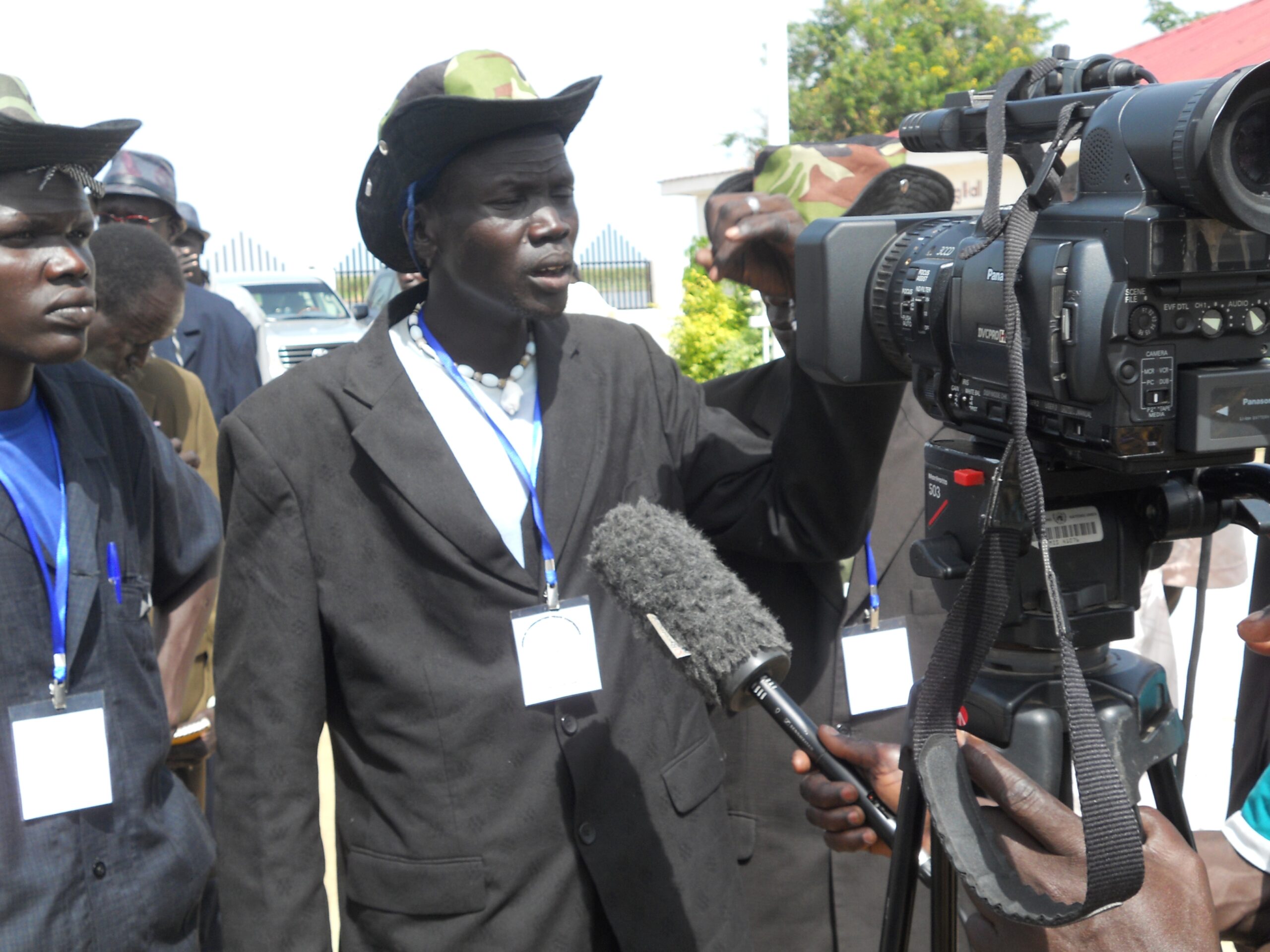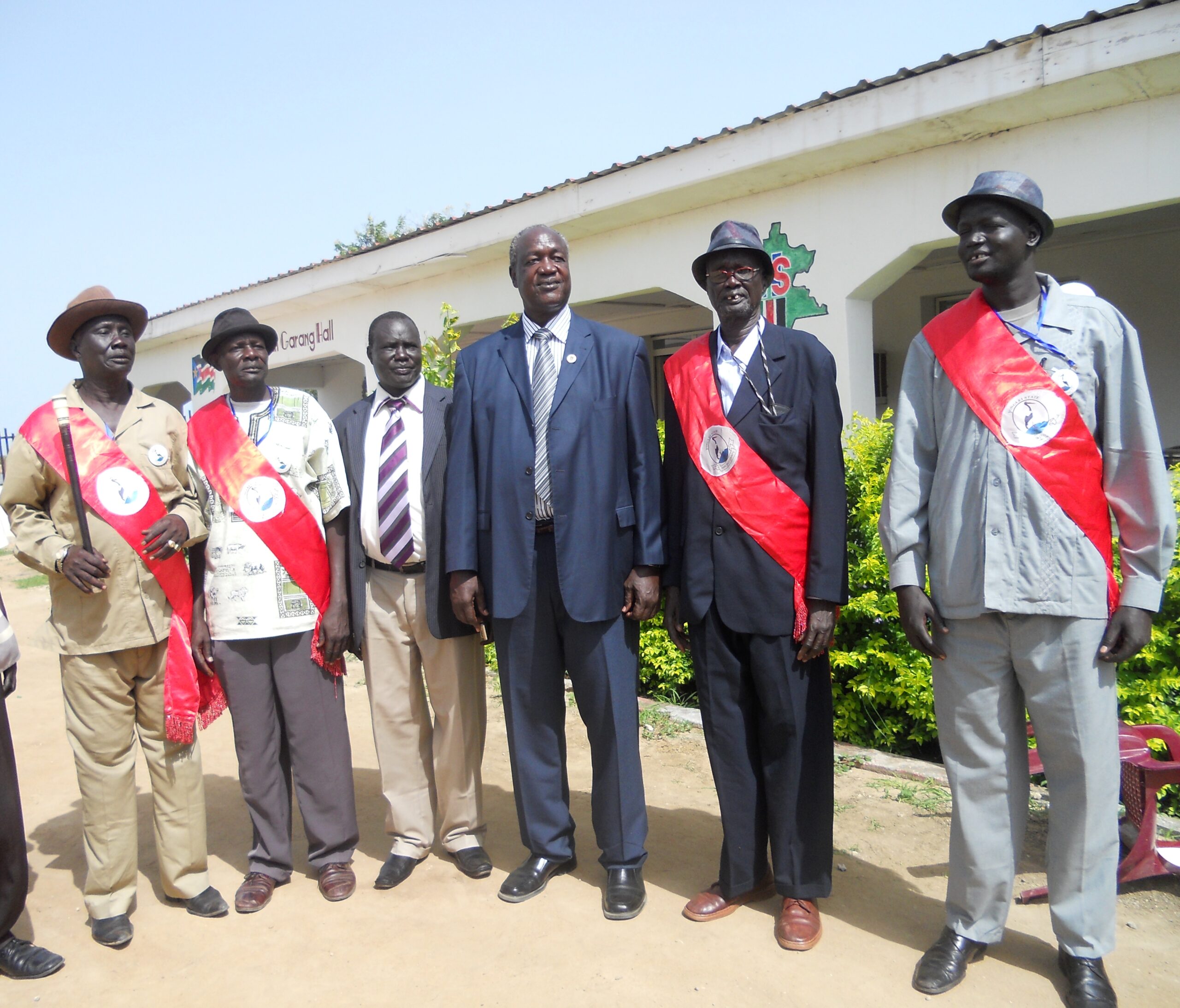Jonglei peace deal may not stop violence
May 4, 2012 (BOR) – Participants of a peace conference in South Sudan’s volatile Jonglei State have expressed concern that the current peace talks may not be able to address the underlying causes of violence despite confidence that a deal will be signed.

“This is a peace conference for people in towns,” Gok Nahek Kok, a youth leader representing the Lou Nuer told Sudan Tribune in Bor on Thursday.
The Jonglei Peace Conference comes in reaction to raids and cattle raids mainly – in recent clashes – between the Luo Nuer and the Murle tribe in the South East of the country’s largest state. However, there have also been instances of raids within and between the larger Nuer and Dinka groups.
However, a six-week disarmament campaign preceded the meeting, which saw over 10,000 arms – the army says – but also led to some armed groups hiding in remote areas or crossing into Ethiopia.
“I have not seen youth leaders from Murle, those who organise and execute cattle raiding and child abduction,” Nahek said in Nuer through a translator. The Luo Nuer also abduct children in their raids but the practice is more synonymous with the Murle due to unconfirmed allegations of infertility among the smaller ethnic group.
Traditional chiefs, youth leaders and members of national and state parliaments from Jonglei’s six ethnic groups are meeting in Bor to find solutions to cattle raiding, child abduction and indiscriminate killings.
The roundtable discussions are being chaired by Archbishop Daniel Deng, who was appointed with 22 other members in January by President Salva Kiir when tribal clashes reached a peak in Jonglei. At least 1,000 people died in the fighting last year according to the UN. Over 100,000 people were displaced in December and January due to the conflict.

Communal violence in Jonglei is believed to be caused by attacks by cattle raidERs, the abduction of children and women, the vulnerability of isolated of communities in their villages due to the inaccessibility of some areas due the terrain, poor roads and telecommunication networks.
Returns of abductees, initiation of development projects and creation of the so-called ‘buffer-zone’ to check movement of criminals are some of the proposed solutions.
But Lou Nuer and Bor chiefs and youth representatives accuse Murle raiders of continuing with attacks as the peace conference is being held in Bor. Murle leaders accuse Bor criminals of attacking a car on Monday leaving three people dead between Bor and Pibor towns. On Wednesday, another car ambush allegedly carried out by Murle left two Ethiopian nationals dead and two South Sudanese – both from Bor county.
Accusations and counter-accusations have dominated three days of intensive debate on causes of insecurity in Jonglei State. Both Lou Nuer and Dinka Bor accused Murle of sparking the inter-communal violence. Murle leaders say they have been acting in self defense or only revenge when attacked.
Awai Ajang Awai, a chief from Twic East County, says: “As we go to sleep in our huts tonight, Murle will start a journey at sun set to sleep near our bushes.”
“It is the Murle chief to say if there is going to be peace in Jonglei or not,” Chief Awai replied when asked if he is confident that this round of peace talks will restore hopes for troubled Jonglei’s villagers.
MURLE WANT OWN STATE
“When Murle is attacked, the government keeps silence. Are we not human beings?” Nganthou Kawelojok, Pibor county paramount chief said.
Chief Nganthou added that he is committed to peace and he came to Bor for peace “and there is no need to talk language of war,” he said to cheers from the delegates on Thursday. Nganthou later told reporters outside the peace hall that only division of Jonglei state into two states will bring peace, according to a Murle dialect translator.
Other speakers from Murle communities supported the idea of splitting Jonglei with one state being given to Pibor and Pochala counties.
Other delegates agreed with division of Jonglei into two but want the national government to decide on how to split South Sudan’s largest but underdeveloped state.
Gatluak Thao, a paramount from Lou Nuer, said the government should focus on arresting criminals in order to protect a peace deal that will be signed on Saturday.
Having signed many agreements before, Jonglei State leaders are worried that the latest roundtables may not be respected in the villages and many members of parliament remain silence through the discussions.
Rev. John Okumu, the spokesperson for the presidential peace committee, said any deal signed from this meeting will be different from past community conferences.
“We will monitor the implement and we will be involved,” Okumu told reporters in Bor on Friday.
Speaking on UN radio, Miraya FM in Inside South Sudan program hosted by the radio correspondent in Bor on Thursday, Okumu claimed that “everybody, whether chiefs, politicians, youths and women, will be involved in making sure that peace is restored in Jonglei state.”
A high ranking delegate from the presidency of the Republic of South Sudan is expected in Bor on Saturday to witness the signing ceremony of the accord.
FAILED AGREEMENTS
Notable peace conferences that failed include the 2006 All Jonglei Communities Peace Convent in Gumuruk, witnessed by former governor Philip Thon Leek and Vice President Riek Machar, Anyidi peace between Murle and Dinka Bor in 2003 and Lilier peace accord of 2002.
Traditional leaders, nevertheless, say that the government must deploy police and manage to arrest those responsible. Only this will bring peace, the say.
According to the Presidential Peace Committee, some cattle were returned to Akobo by Murle raiders but they were not arrested “as part of [an] amnesty during [the] peace conference,” Rev. John Okumu told UN radio on Thursday. He pledged that suspected cattle raiders and child abductors will be arrested and brought to book after the communities agree on terms of the peace accord this weekend.
The Commander of the 15,000 strong SPLA forces disarming communities in Jonglei State, Gen. Kuol Diem Kuol says his forces will remain in the state until reports of insecurity are no more. But with the conflict on the border with Sudan border, the government may be reconsider keeping such a large force what is essentially police work.
On Friday, delegates meet to listen to recommendation compiled by the presidential peace committee to be endorsed and signed on Saturday. Expectations are high and participants are optimistic that a peace deal could be signed.
SOLDIER ARRESTED FOR DEATH OF WOMAN
May 5, 2012 (BOR) – A soldier from South Sudan’s army (SPLA) has been arrested for the alleged murder of a fifty-year-old woman at Pariak village in Jonglei State on May 4.
Mac Kuach Awar a relative to the deceased told Sudan Tribune on Friday that Keth Ajak was shot dead by a SPLA who had entered her village and asked for water and directions to Panyier SPLA camp.
Keth was shot when she turned her back on the soldier to go and bring water for him, Awar said. The soldier shot her through abdomen at a distance, Awar said, killing her on the spot.
After she was shot five other women who were there “got up and caught the man who attempted to run. They removed the gun from him and hold him down, shouting at the top of their voice till we arrived”, Awar reported.
The body was brought to Bor police station and to hospital where the death was confirmed to have been caused by the gunfire.
An eyewitness, who identified herself as Martha, said the soldier was about to escape after killing the old woman.
She said the the man was not drunk and he appeared normal before and after killing the Kethdit.
The soldier, believed to be called Kon Atak, is now kept at Malual Chat SPLA camp until police call for an investigation, military officers said on Friday 4 May.
In March two soldiers were arrested over rape case at Pariak and were jailed at the military base.
The commander of the disarmament operation in Bor who is in charge of the SPLA unit in Bor said their office has designed clear laws to deal with any criminal offenses committed by SPLA soldiers.
Kuol Diem Kuol said the two rapes cases were taken to a military court and the judgement was past but will be announced after it is approved by military leaders in Juba.
He added that this murder will also be tried by the court.
(ST)
